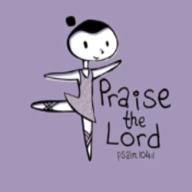請問各位用哪個版本的聖經?
2006-12-09 8:46 am
如題。(不是基督徒也可作答。)
回答 (9)
2006-12-09 11:13 am
✔ 最佳答案
Usually I use 和合本 and NIV (English).But when I do Bible Studies and I have problems understanding the passage (such as wording problem), I will use other versions such as the more contemporary ones or even the 呂振中譯本 (Lu used the direct translation method making an attempt to keep the grammar and semantics of the original langages)
I guess because I have a linguistics degree so I am rather picky on the wording and stuff... but I highly encourage you to try reading more than just one version because there are no two languages that are totally identical; you simply can't translate one to another and be able to keep everything.
Keep in mind that the Bible was written in a different historical and social context as we now are, so the more background you have the better you will be able to understand the Bible. As a result, different versions and different languages of the Bible can actually complement each other. For example, English expresses plural with the suffix [-s] or [-es] (to be linguistically correct it should be the phoneme /-z/ but I think most of you will be happy with the allophones) but Chinese does not express plural (or numbers rather) in its morphology. So, we can see the hint of the concept the Holy Trinity with the seemingly contradicting plural vs. singular form in English. You won't be able to read that in Chinese versions.
Isn't it amazing? We should praise the Lord for giving us all these interesting things!
2006-12-09 11:57 pm
我係用 和合本/king james version~~~
2006-12-09 6:13 pm
新標點和合本..幾好架...
參考: 自己自己
2006-12-09 5:33 pm
最常用的是新譯本(讀經、靈修)
返教會則用新標點和合本
家中還有以下版本,間或用作參考
NIV, NASB, NRSV, The Message
返教會則用新標點和合本
家中還有以下版本,間或用作參考
NIV, NASB, NRSV, The Message
2006-12-09 10:49 am
和合本啊
chinese egnlish bible
chinese egnlish bible
2006-12-09 8:59 am
和合本和中英聖經
2006-12-09 8:54 am
和合本的神版
參考: me
2006-12-09 8:48 am
和合本啊
holy bible
holy bible
收錄日期: 2021-04-12 20:50:52
原文連結 [永久失效]:
https://hk.answers.yahoo.com/question/index?qid=20061209000051KK00204




